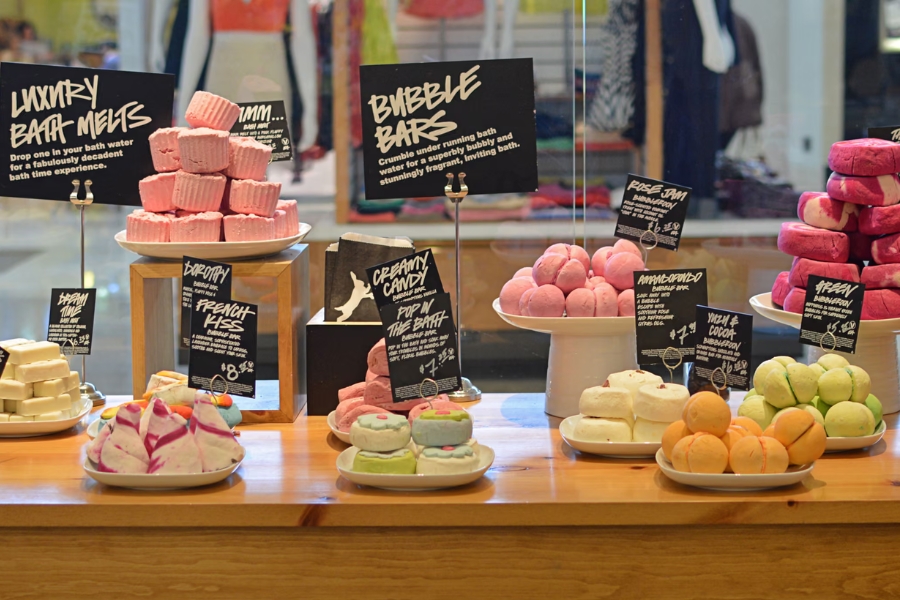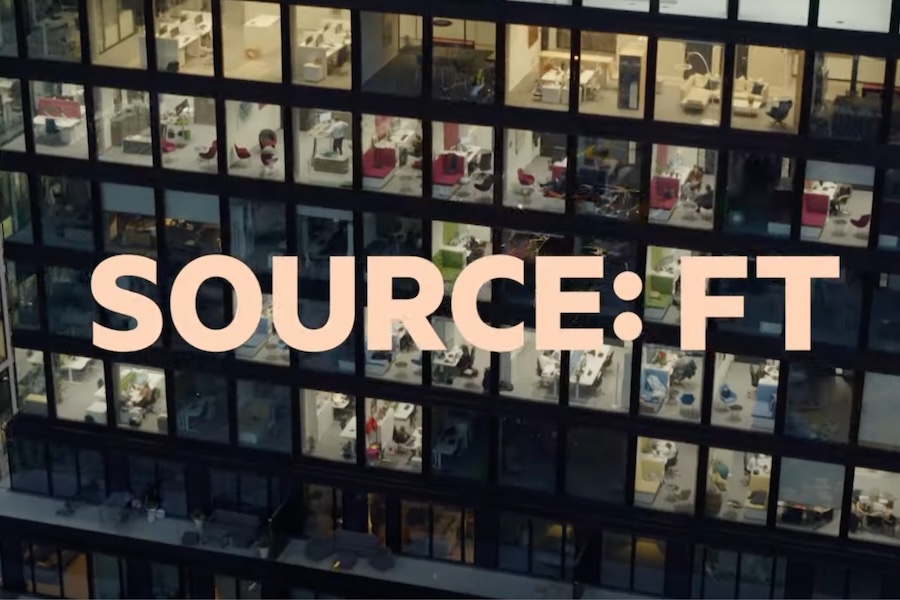Following the murder of trans schoolgirl Brianna Ghey in February last year, I asked is adspend funding an increase in hate crime? This column is a reflection on what's changed since then.
Last June—which is also Pride month—I led a call with Outvertising to encourage advertisers to invest in media that match their values and divest from media that spread disinformation. The top 10 media agencies representing $8.7 billion (£6.9 billion), including EssenceMediacom, Wavemaker, OMD and PHD, committed to divesting adspend from disinformation in the media. And this commitment was also made by the World Federation of Advertisers, ISBA, the Alliance of Independent Agencies, the Marketing Society, IAB and the Advertising Association. But how did these commitments affect the media coverage of the murder trial that concluded in December?
At the end of last year we learned that on Saturday 11 February 2023, Brianna was stabbed a total of 28 times in a "sustained and violent" assault planned by her assailants. The two kids found guilty of her murder shared messages with each other which contained transphobic slurs and references to Brianna's genitalia. One particularly horrifying detail was their curiosity as to whether she would scream "like a man or a girl". I write this not to shock but to convey just how brutal this crime was. A jury convicted both killers on 20 December.
It was a crime committed in the long shadow of an increasingly hateful environment for trans+ people that left Brianna vulnerable. It's making all our trans and gender-diverse youth vulnerable, too. Transphobic bullying is commonplace in our schools and it's driving non-attendance. We're seeing children too afraid to sit in their classrooms due to the fear of being harassed, especially as schools continually fail to safeguard.
This perpetuation of anti-trans attitudes played a role in Brianna's murder. And in this case, the media has to take its share of the blame.
Holding the powerful to account
The Mail Online is positioned by Mail Metro Media, which represents it for advertising, as one of the "nation's most engaged newsbrands."
According to community database Dysphorum, this title alone has increased its coverage relating to trans people 113-fold over the past 10 years. The site carried 1,249 stories in 2023 alone, up from just 11 in 2014—that's a leap from less than one a month to now more than three stories a day. It has moved from coverage to ideological obsession, taking an increasingly frenzied position toward trans+ people and frequently referring to "gender ideology". As the Trans Journalists Association's style guide argues, this phrase implies that trans+ people, simply by being trans+, "are participating in a political activity or have a political agenda."
It, therefore, comes as no surprise that its coverage of Brianna's murder was shameful. The site chose to report Brianna's deadname in November and it remains published today despite heavy criticism.
It even produced a new podcast series while the trial itself was taking place. "The Trial: Brianna Ghey" tipped us fully into a Black Mirror universe. Approached voyeuristically, Brianna's murder trial was turned into entertainment and pulp.
And all the while, brands with trans+ inclusive values are advertising around these tasteless, dehumanising editorials.
The data will tell you that sensationalised and/or disinformative stories about trans+ people have grown in number because the combination of sensationalism, mistruth and trans+ identities are calculated to be a winning formula for capturing our attention.
Dirty attention
I call this "dirty attention". Attention that, through the course of being developed, harms our society. And it's this attention that's being sold to us as ad space. We have to do something about it.
While I've focused here on Mail Online, this is a media-wide problem. Led by engagement data, news and opinion, the media are warping and optimising to demonise and package up trans+ lives to sell us burgers, cars and holidays.
In 2023, if we exclude PinkNews, there were 6,522 stories relating to trans+ people. That's almost 18 stories a day with a majority having negative framing. This is a 34-fold increase over 10 years. It's prolific and becoming increasingly dangerous for trans+ people.
We are in the midst of a reckoning
These stories monster us. In November, we saw phrases like "social contagion" re-played by the Mail Online's health editor. And then, in December, we read its columnist Helen Joyce write that she "almost wept with relief" as trans people were being described by business secretary Kemi Badenoch as an "epidemic."
We are further dehumanised when our identity is described as a "contested belief" by the government's draft trans guidance for schools. All of this, every day, for years, makes it easier for society to remain apathetic. Compassion falls away when we're continually degraded. But as dirty attention has grown, we're starting to see early signs of a reckoning. The status quo is beginning to fracture as we wake up to the damage being done to other human beings, communities and, yes, our brands.
X Corp saw advertisers leave the platform when they found themselves appearing next to hate content. The New York Times reported that X Corp might lose up to $75 million with brands like Airbnb, Coca-Cola and Microsoft halting adspend on the platform. When asked about this at a conference, Elon Musk told advertisers to "go f--- yourself."
GB News is also struggling to attract advertisers due to its well-documented divisive content.
There's a simple reality at play here. Advertisers are welcome to exercise their commercial freedoms by advertising in places that deliver on their commercial and other objectives. Yet a growing concern for advertisers has become the ethical considerations of doing that. That is freedom of capital. As this trend continues, if these media brands and platforms want to turn a profit with the help of advertising revenue, they must focus on making their product more attractive to advertisers instead of pumping out poison for clicks and impressions.
Eyes will turn to the default media buys
The media brands seen as the default national titles are baked into many advertiser media plans. They have the benefit of established commercial relationships with agencies and advertisers. However, as brands they need to wake up to the harm they're propagating. And if they don't clean up their act, they'll find advertisers pulling their spend.
As mentioned above, the top 10 media agencies have committed to divesting adspend from disinformation. And significant bodies such as the WFA, representing advertisers, have also done so. It's become a boardroom priority for advertisers to interrogate what media they are funding. And to ask themselves if they are incentivising a media environment that harms society.
And it's not just businesses that are thinking about this issue. Awareness is also growing among consumers. In fact, Outvertising's research found that nearly two-thirds (64%) of LGBTQIA+ people say they are more likely to reject a brand if its views are not aligned with their own and 50% of non-LGBTQIA+ people say the same. More importantly, the majority of people say they are "not prejudiced" toward transgender people. It's becoming an essential part of our ethical and inclusive business practice to get a grip on this.
Media agencies that are not proactive in having this conversation with their clients will find that their clients bring them problem media buys more frequently, which will tie up resources in fire fighting.
The biggest agencies have committed to advocating for the divestment from disinformation in the media, but they continue to build titles like Mail Online into most media plans without discussion with their advertiser clients. This hypocrisy isn't good enough. Your pledges mean nothing unless you act on them. And it has never been more urgent to do so.
Our industry talks a good game. 2024 must become the year we commit ourselves to putting substance behind our words.
Marty Davies (she/they) is joint chief executive of Outvertising, the marketing and advertising industry's LGBTQIA+ advocacy group; and co-founder of Trans+ Adland, a grassroots community group of trans, non-binary, gender non-conforming and intersex people across the world of marketing and advertising. They are also the founder of creative strategy consultancy Smarty Pants and founder of Trans+ History Week.
A spokeswoman for DMG Media said: "Court reporting is an essential part of justice and our acclaimed podcast series 'The Trial'—now heading into its fourth season—has always treated the dignity of the victims of crime, including Brianna Ghey, with the greatest respect.
"Over the last 10 years, the trans debate has grown hugely in prominence.
"This is reflected in MailOnline's coverage—and across the media—and we make no apology for tackling challenging subjects.
"Even so, the issue accounts for a tiny proportion of the 630,000 stories that MailOnline publishes each year.
"In common with other news titles, the Mail reported Brianna Ghey's former name in one article in November after the judge used it in court in comments to the jury."











